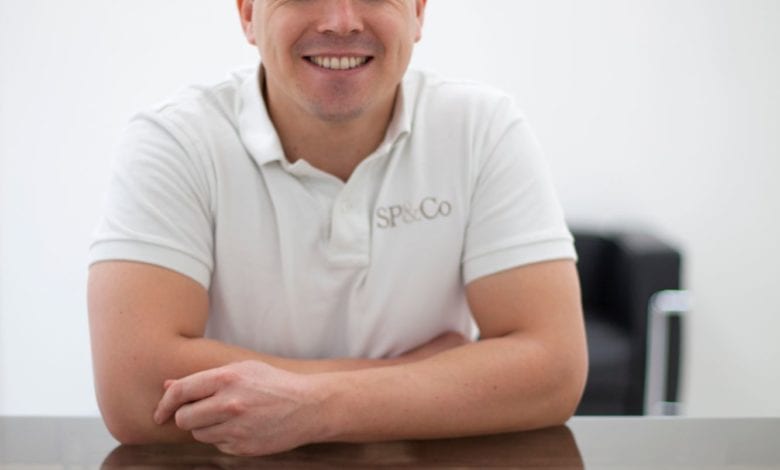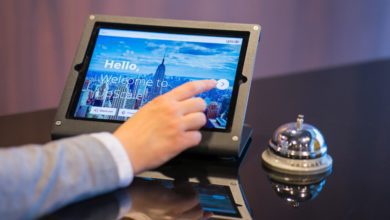Why a specialist health/wellness business should be part of hotel plans post-Covid

Wellness tourism is the fastest growing segment within the global tourism market, with health and fitness facilities becoming a core component of hotels’ offerings. Already within hospitality, there have been several major hotel companies and operators responding to this trend through the acquisition of specialist wellness brands and the repositioning of existing assets.
While not all changes lead to improvement, all improvement requires change. This is a truth that hotel owners and investors will need to consider now when looking at their health/fitness and spa offering post Covid-19.
The positive health impact of evidence-based health, fitness and nutrition has been thrust into the public eye day on day. This, coupled with an all-time high in appreciation of modern medicine and national health care services, means spa managers, hotels and owners will have a very real decision to make with regards to what they offer and where it sits in the continuum of wellness. Consumers will not only want more advanced and focused spa facilities but also a wide range of other ‘soft’ elements – the ability to personalise, ethical/sustainable values – which are fundamentally ingrained with the evolving meaning of wellness.
Over the last 30 years, spas have become an increasingly common amenity in hotels of all types and the principal space in which wellness is seen to be delivered. Piers Schmidt from leading hotel consultants Luxury Branding stated in 2019 – pre Covid-19 – that ‘the hugely growing wellness sector and significant investments by high-end hotels in health and fitness suggest that hospitality and fitness are natural partners.’ Schmidt went on to say that, in a study for Hotel Brand Standards by the Cornell Centre for Hospitality Research, published in February 2017, it was revealed that although 46 per cent of guests intend to make use of hotel fitness facilities, only 22 per cent did so. When you isolate the top echelons of luxury, the number of users dropped to 20 per cent.
Despite these poor utilisation figures, CBRE Hotels Consulting argued that investment in top quality fitness/wellness facilities is now a “necessity” for all premium and luxury properties because guests require them as part of the standard set of hotel amenities. In support, a 2016 survey by MMGY Global found that nearly 50 per cent of millennials are inclined to pick a hotel based on its ability to help them stay fit. With total engagement of wellness as a lifestyle, the spa evolves from ‘nice to have’ to ‘essential’ as part of the guest experience. Just as the hospitality industry has seen enhancements across in-room technology and higher quality food and beverage offerings to meet changing consumer demands, likewise the spa and wellness offering is becoming part of every aspect of the hotel, from healthy menus and sleep aids, to dumbbells in the wardrobe and rooftop yoga.
With already growing numbers of more highly qualified wellness operators entering the hospitality space, traditional hotel brands will not be able to vie for consumer loyalty based on health and fitness alone. The requirements of spa goers are changing as they no longer seek just pure relaxation, but instead mental revitalisation or physical strengthening, anti-ageing or beauty enhancements. With this in mind, it becomes clear that this redefinition of the hotel spa is important, but maybe a total pivot in operations or concept is not desirable, especially if the wellness partner is right.
The UK Spa Association cites a very positive ‘return to spa’ attitude from over 5,000 consumers, with 80 per cent ready to return straight away – something I have seen first-hand in between lockdowns with my wellness clubs bodySPace in Knightsbridge and FitSpace in Chelsea. Moreover, within this large cohort, it states that with proper safety measures visibly in place (PPE from therapists, temperature check etc) very high percentages of guests are willing to try most beauty treatments and use all facilities including thermal offerings.
For me this holds the answer – for too long spa has been a product-led industry exhorting messages and a sometimes generic, passive approach which also heavily burdens an unsupported and inexperienced work force with the mantle of promoting health change. Years of repackaging different messages based on chasing consumer trends as opposed to what is known to work, with the same (if not deteriorating) operational infrastructure, has led to a critical situation in which we find ourselves with an industry that over promises and under supports when it comes to evidence-based health. Perversely, it is an industry that was deemed unnecessary to keep open during a pandemic because its perceived value to health is not really validated.
In my 20 years of spa and wellness I have seen an evolution in consumers’ wellness demands that is not always reflected in the industry. I have learned that challenging a spa team to be a health team with little support can be ineffective and counterproductive. Service is a human-led proposition, and with such an emotive and personal topic as wellness it is vital to empower teams with the knowledge, skills and confidence to deliver simple yet evidence-based, proven strategies with a holistic approach. For an industry that preaches wellness and trades off authenticity this is key, and the investment relatively modest.
This should all be a positive for the spa industry – a chance to have a reality check. The simplicity of a wellness message transcends yearly trends, and the transparency of a wellness message offers longevity and return on investments. Collaborations with companies that specialise in health, fitness and wellness show an integrity and realism that inspires trust in consumers to return.
It is essential that a spa simplifies but also magnifies what it does well – service and delivery in beautiful therapeutic environments where thoughtful and evidence-based messages can once again make the spa industry a major credible voice in wellness. Go outside this remit at your peril and if you do try it yourself, then be prepared to invest, commit and staff accordingly with no foreseeable proven end game.
The consumer knows how to change health related quality of life – it really is not that grey anymore. They know the role of physical activity; they know the role of mindfulness and they know the role of nutrition – they also know the role of community and the effect of positive experiences. These need to be considered when deciding on how your operation wants to be perceived. I hope the industry I love is strong enough to simplify and also brave enough to celebrate how strong specialist collaborations can elevate not compete with existing concepts.
By Stephen Price, Founder and Managing Director of SP&Co Group









